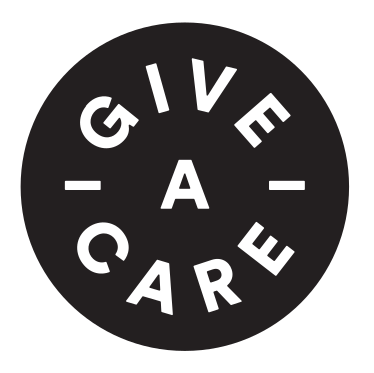Fact is, some people say the stupidest sh*t to people with breast cancer. Do not be one of them. Cancer already sucks; the last thing anyone needs is an awkward comment from a well-meaning friend, co-worker or family member. Although not a complete list, here’s a cheat sheet for 10 cringey (yet shockingly common!) phrases that you should do your best to avoid—and what to say instead.
WHAT NOT TO SAY
-
“At least…” — As in, “At least it’s curable,” “At least you don’t need a mastectomy" “At least you have the good kind of cancer.” This is a form of avoidance that minimizes their suffering. The fact is, you can’t fix it, but that’s okay.
-
“You’ll get a free boob job.” — Just so we’re clear, a mastectomy is not elective cosmetic surgery. It is an amputation that involves the removal of part of the body that is arguably most associated with womanhood, not to mention one that often requires multiple painful surgeries.
-
“Have you tried…?” — Ask anyone who’s gone through a cancer diagnosis, and I bet that 100% of them have been on the receiving end of unsolicited advice. The community affectionately(ish) refers to these people as “cancer muggles,” folks that feel the need to make suggestions about alternative treatments, diets, or other lifestyle changes in the vein of “chemo is poison; It’s all a big pharma conspiracy; All you need are essential oils from my MLM!”
-
“Everything happens for a reason.” — Sometimes, terrible things just happen, and rationalizing them or trying to find order within that chaos is probably the last thing someone who’s processing it needs.
-
“Stay positive and pray.” — Toxic positivity doesn’t boost someone’s resilience; It denies their reality. It’s okay to feel all the emotions: sadness, despair, grief, etc. It’s all part of the process.
-
“You’re such an inspiration, I don’t know how you do it.” — Spoiler alert: they didn’t have a choice.
-
“It’s just hair. It’ll grow back.” — Hair isn’t just hair. It’s indelibly wrapped up in identity, sexuality, and character, and is a visual reminder of how cancer can strip away their personhood.
-
“But, you don’t look sick.” — She’s sick, not ugly.
- “I know how you feel.” — Admitting that this is new territory for both of you will go a lot further in deepening trust than faux relatability.
- Any adversarial language — Cancer patients aren’t ‘warriors’, survivors didn’t ‘beat’ or ‘conquer’ their illness, and those who died didn’t ‘lose their battle’ (the implication being that they didn’t ‘fight’ hard enough). Of course, many patients themselves choose to adopt war/combat metaphors (and there’s absolutely nothing wrong with that, you do you!), but for every one of those people who find them empowering, just as many feel uncomfortable and frustrated by them. So, normalize talking to someone with breast cancer as the understandably frightened, utterly human individual that they are, without valour or virtue.
Beyond this list, there’s one phrase in particular that I find to be arguably the most egregious, and it’s this: “Let me know if you need anything!”
Admittedly, it’s something I said all the time before going through cancer—and I meant it, sincerely. I later realized, quite viscerally, how unhelpful it is. It shifts the responsibility onto them to ask for assistance, which can feel pretty overwhelming when they’re already grappling with *gesticulates wildly* everything else. People facing cancer just don’t have the energy to articulate their needs or delegate tasks. And as well-meaning as it may be, the let-me-know-if-you-need-anything of it all can come across as vague or impersonal; just one more thing to add to their decision fatigue.
To paraphrase Yoda: “Do or do not. There is no try lemme know if you need anything."
WHAT TO SAY INSTEAD
Alright, so we’ve established some of the things that shalt not be uttered. Now, here’s a handy list of options to say instead. Feel free to adjust as you see fit.
- “I don’t know what to say, but I do want you to know that I’m here for you.”
- “I am so sorry this is happening to you.”
- “I’m thinking about you.” (while making it clear that you don’t expect a reply).
- “What can I do to make this better?”
- “I can’t possibly know how you feel, but if you need to talk, cry, or vent, I’m here to listen.”
- “This is a lot to deal with—take it one breath, one step, one day at a time.”
- “It’s okay to feel however you’re feeling right now.”
- “I admire your strength, but it’s okay to have tough days, too.”
- “If you feel up to it, I’d love to [insert a favourite activity or pastime] together.”
The truth is, no words will magically erase a cancer diagnosis. But the right ones can ease the weight a little. So skip the clichés, ditch the weird platitudes, and for the love of all things pink ribbon, don’t say “let me know if you need anything.” Remember, it’s not about saying the perfect thing—it’s about saying the thing that lets them know they’re not alone. — Aya McMillan
Aya McMillan is a Key Collaborator for Rethink Breast Cancer. Since her IDC diagnosis in 2017, Aya has supported the community through fundraising, peer mentoring, and sharing her story in research papers, panels, blogs, and interviews — all in the hope of making the next girl’s cancer journey a little more bearable.



